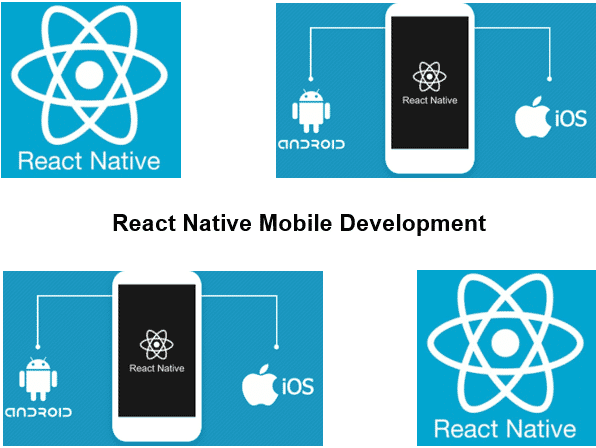-
Learning by doing
-
Trainers with practical experience
-
Classroom training
-
Detailed course material
-
Clear content description
-
Tailormade content possible
-
Training that proceeds
-
Small groups
In the course React Native Mobile Development from SpiralTrain participants learn to build mobile applications for both Android and iOS devices using only JavaScript. React Native saves development time because the same code is used for both the app on Android and the app on iOS. React Native is based on the ReactJS Framework developed by Facebook. React Native and ReactJS are based on the same principles but differ in how the User Interface is built.
The React Native Mobile Development course starts with a discussion of the basic architecture of React Native. Attention is paid to the set of React Native components with which mobile apps for both iOS and Android can be created with a native look and feel.
Subsequently the structure of Reactive Native apps and data exchange with props and state is discussed. The virtual DOM, JSX and the render life cycle are treated in this respect.
Then the various components in React Native are reviewed such as ListView, ScrollView, Picker, Slider and Switch. And also attention is paid to ActivityIndicators and AsyncStorage.
The course program also covers APIs for device interaction such as AppState, BackHandler, ClipBoard, Geolocation and Dimensions, InteractionManager, Keyboard and LayoutAnimation. Some APIs are specific to Android or iOS and these are treated as well.
Then it is time for a discussion of state management in an App through Redux. With Redux the state is stored in a central location, the Redux store, and the components are notified of changes via action dispatching.
Finally attention is paid to a number of platform-specific matters such as native components that specifically target iOS or Android devices.
The course React Native Mobile Development is intended for developers who want to learn how to develop cross-platform mobile apps with React Native.
JavaScript programming experience is required. Prior knowledge of the React Framework and mobile app development is beneficial for the understanding.
The subject matter is treated by means of presentations. Demos are used to clarify the theory. Theory and exercises are interchanged during the course. The course material is in English. Course times are from 9.30 to 16.30.
Participants will receive an official certificate React Native Mobile Development upon successful completion of the course.

Module 1 : Intro React Native |
Module 2 : App Architecture |
Module 3 : Components |
| What is React Native? Native Components Platform Support On top of React JavaScript Glue Cross Platform Installing React Native NodeJS Setup Installing Yarn Install JDK Creating Projects React Native CLI |
Virtual DOM Render Bridges JSX React Components State and Props Render Life Cycle Immutability Container Components Flexbox Support Inputs Router Flux Styling |
View and ListView ScrollView WebView Buttons Modal ActivityIndicator Picker and Switch Status Bar Slider Image Text Alert AsyncStorage |
Module 4 : API's |
Module 5 : Redux |
Module 6 : Platform Specifics |
| AccessibilityInfo Alert and AlertIOS AppState BackHandler ClipBoard Geolocation and Dimensions InteractionManager Keyboard LayoutAnimation NetInfo PixelRatio ToastAndroid Vibration |
React with Redux Three Principles Single Source of Truth Read Only State Action Dispatching Pure Functions Initial State Redux Store Reducers Dispatching Data Flow Unidirectional Async Flow |
Native Components iOS Simulator iOS-Specific Components ActionSheetIOS DatePickerIOS SegmentedControlIOS Android-Specific Components Android Emulator eject Command USB Debugging DatePicker Android TimePickerAndroid ViewPagerAndroid |
